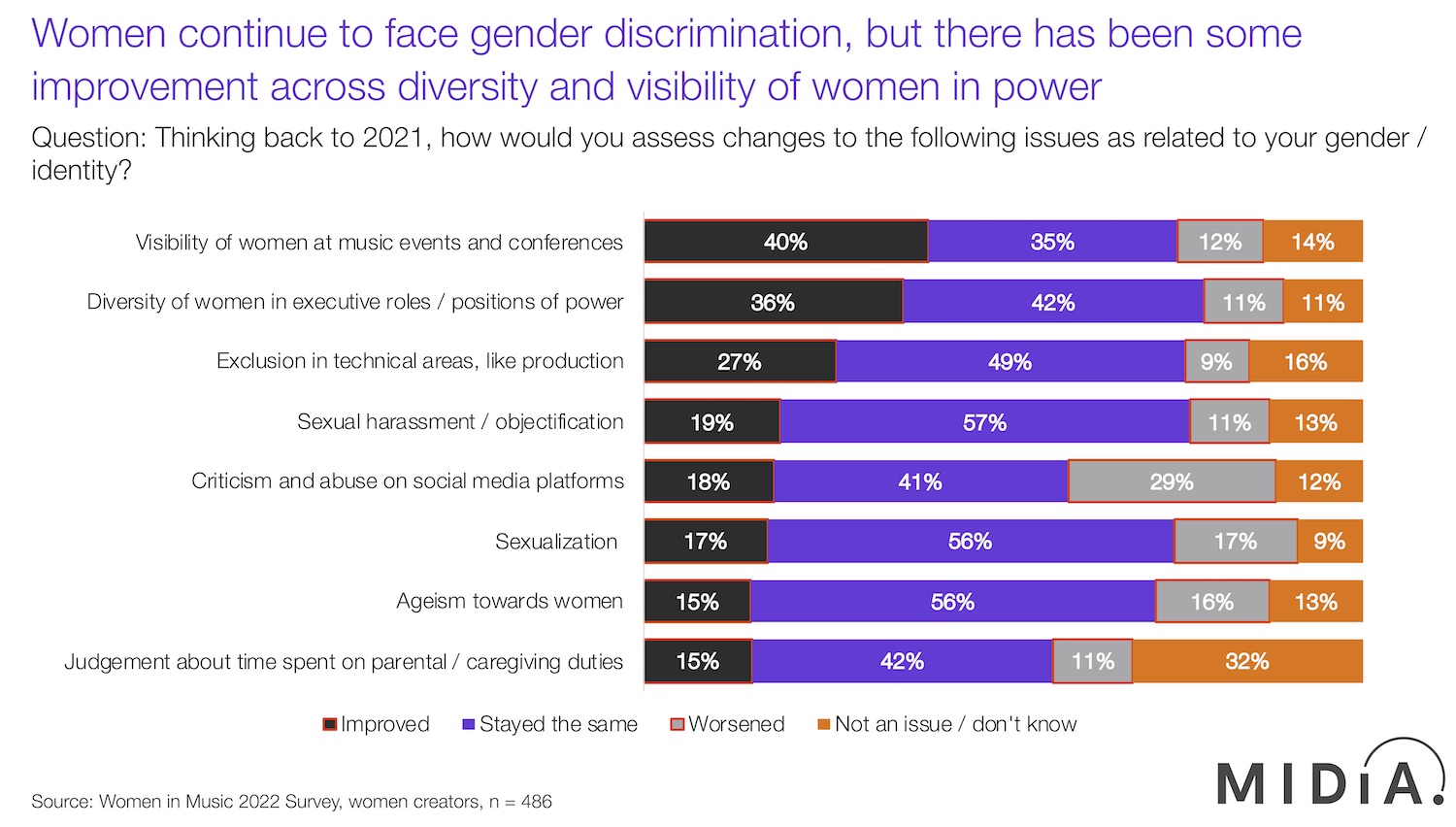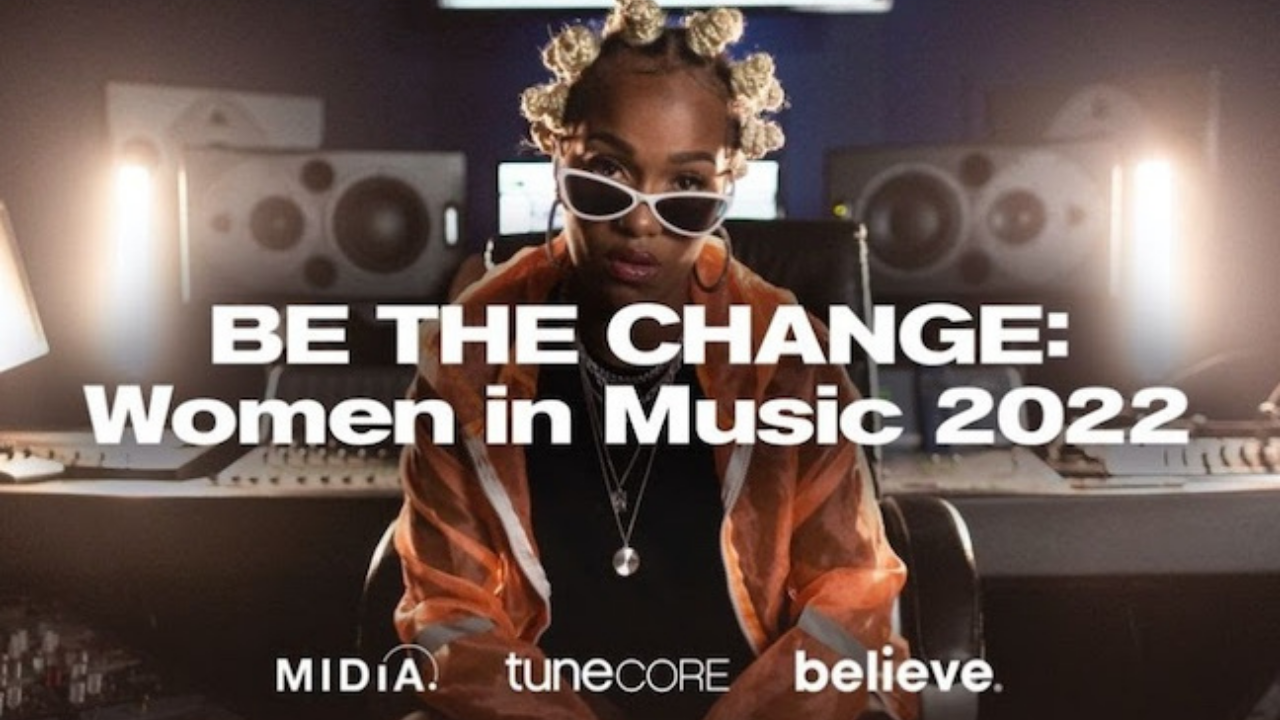MIDiA Research, in partnership with TuneCore and Believe, has released the second annual global study Be The Change: Women In Music 2022.
The report follows the groundbreaking study conducted in 2021, which revealed the challenges that women creators and executives face in a male-dominated industry.
For the first time, the study breaks out differences by region, genre, gender identity, and role (executives versus creators). Also for the first time, it surveyed men about their perceptions of womens’ challenges, and their own role as allies.
The study also significantly broadened the scope across other non-male gender identities and the different challenges they face. In addition to the survey, MIDiA conducted interviews with independent artists from around the world, including Armenia, India, France, Lebanon, Mexico, Nigeria, Thailand, the USA and the UK.
“A sobering picture emerges of lack of real change since 2021, and little progress with the challenges that women face,” stated the report.
The study unveils the four key areas that require substantial progress: harassment, the perception gap (between men and women), the value gap (women’s pay and reward), and confidence. Despite the high level of awareness in mainstream media on the topic of sexual harassment, it remains the top challenge that women continue to face, evidenced by all groups cited within this research.

In the survey, more than half of the men surveyed indicated that they have listened consciously, encouraged women to be part of the music business, and actively involved women in projects. However, the study recommends specific calls to action for men working in the industry to step up with much more proactive support and encouragement of non-male co-workers.
Despite the continued challenges, a bright spot lies in the visibility of women in the music industry at live events and conferences, among the few challenges perceived as improving by women creators (40%).
TuneCore CEO Andreea Gleeson said: “Today’s music industry demands a range of viewpoints to fuel its evolution. Diversity and gender equality in the workplace have been proven to increase productivity, performance and quality. Those who do not value an array of perspectives lose growth opportunities and suppress innovation. Equality is quality. While it’s encouraging to see that the visibility of women in the music industry has improved in the last year, we still have a long way to go to bridge the diversity gap. For real change to occur, we all need to take action both as individuals and collectively with each other. We must be the change we want to see!”
Denis Ladegaillerie, founder and CEO of Believe, said: “Promoting inclusivity and gender equality is at the very core of Believe’s values. This is why it was key for us to continue being a part of this important conversation for our industry. I hope the ambitious calls to action presented in the report can have a positive impact and help us collectively do better in addressing the current challenges many women creators and executives face and to create a safer and fairer environment for all of them”.
Mark Mulligan, managing director at MIDiA Research, said: “We are very proud of this second edition of the Women in Music report. Last year’s report had an important impact on the market, providing long needed data that revealed the scale of the challenges facing women in music.
“This year, we have significantly built upon these foundations, expanding and deepening the scope to address issues, such as the role of confidence and the perception gap between how males view the scale of the problems compared to how things actually are. Unfortunately, not enough progress has been made within the last year. This is why we have included strong calls to action, with the hope that this time next year we can report on truly meaningful progress and change.”
Zequenx, an Indian Ableton-certified producer, said: “Everything is going around in a circle. People are just talking about making change, and they only keep talking about it. It’s not just ‘show and tell’. But to actually make a more diverse industry, we would require a certain amount of authority and proactiveness. An independent effort is not enough. It has to be a collective effort – it has to ripple out.”
